HQ2 – What is it?
Most everyone in the country, Architect or not, has heard of Amazon’s latest move, so it’s only appropriate to comment on.
Amazon, the small online book retailer turned mega cooperation selling groceries and TV shows, has put out an RFP (request for proposals) – to cities nationwide! To those not in the architecture or planning industry, this is not “typical”. Amazon released the RFP calling for cities, which meet certain criteria, to propose sites which Amazon could develop up to 8 million square feet of new office space. Amazon promises this will create as many as 50,000 new direct hires averaging salaries of $100,000! In Seattle, at their main headquarters, their investments have resulted in an additional $38 billion dollars for the city’s economy… THAT’S NUTS! Amazon will clearly be an asset to ANY city. So what are they asking for? Do they have any responsibility to the city? Or is this simply a “whatever’s best for business” decision?
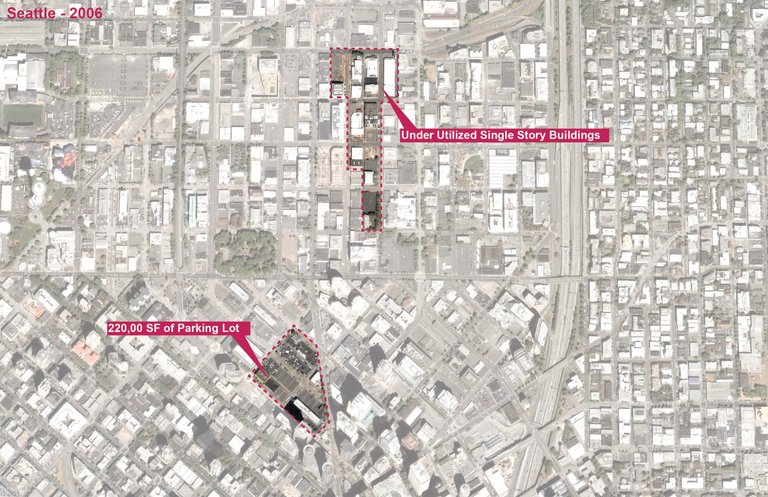
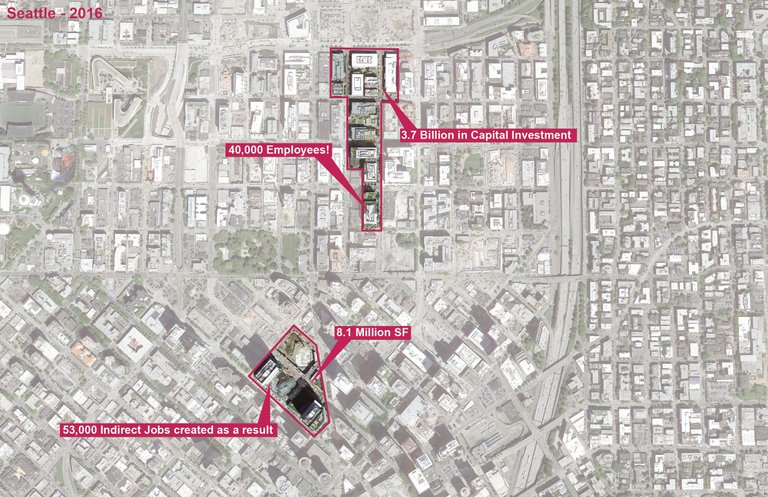
What Amazon has done for Seattle…
Amazon transformed 2 areas of downtown Seattle and sparked a development boom. The South Lake Union neighborhood, where Amazon put its first piece of development, was formally a patchwork of underutilized space, parking lots, and warehouses. After they opened the foot traffic in the arrow quadrupled, spurred the creation of 50 new buildings, and rippled out across the city transforming the community. Amazon created 40,000 direct hire positions and instigated 53,000 indirect jobs. The creation of nearly 100,000 jobs will transform ANY city. They additionally invested $43 million dollars into Seattle’s public transportation system and invested $3.7 billion in capital through buildings and infrastructure. Amazon radically reshaped Seattle.
![]()
Take a look at a few before and after photos from Gene Balk at the Seattle Times. The show the change from parking lot to urban canyon in a crystal clear snap shot.



Amazon, along with other corporate entities like Google and Facebook, have also shaped the future of the workplace. Moving from cubicles and conference rooms to bean bag chairs, outdoor lounges, and bio-dome retail/work hybrids! When Amazon brings its offices to a city it brings much more than brick and mortar, it brings lifestyle, culture, and identity.
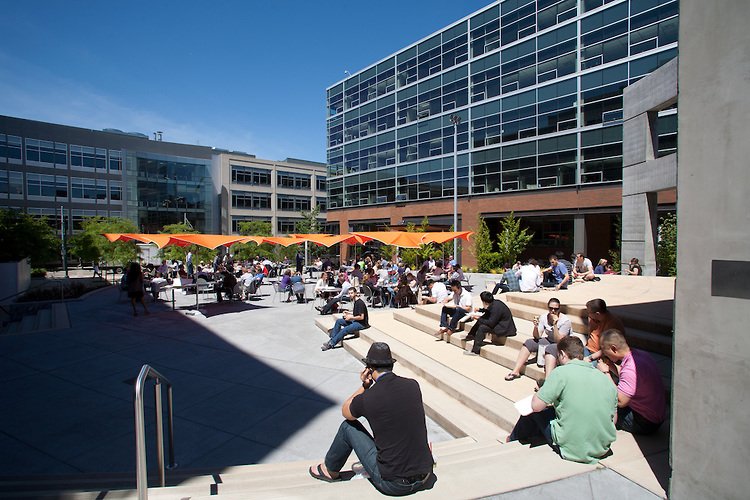
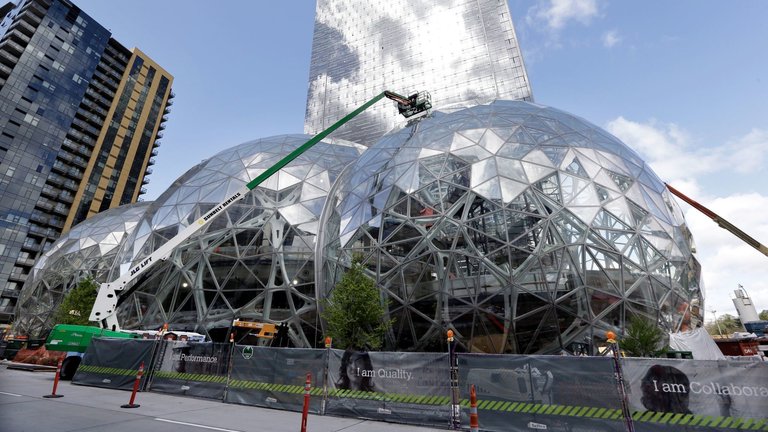
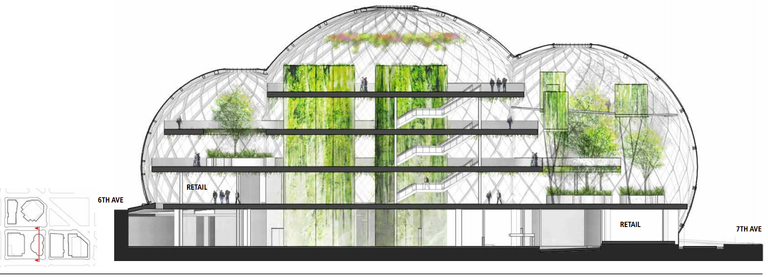
What does Amazon Ask from the Cities?
Amazon is asking cities who are interested in welcoming Amazon’s second HQ to provide a list of fairly specific things:
- Metro with more than 1 million people
- Stable business-friendly environment
- Urban or suburban (not likely) locations with potential to attract and RETAIN talent
- Communities that think big!
- Urban or downtown campus
- Existing building of 500,000 SF
- Greenfield site of 100 acres
- Optimal fiber connectivity
- State and city should identity an incentive program for the project (land, tax, grants, etc)
- Within 45 minutes of international airport
- 102 miles from major highway and arterial roads
- Mass transit on site
- Availability of 8 million SF by 2027
That’s a hefty list but it is one that many cities will meet. Amazon is basically looking for a city that is decently populated, has an urban center with transportation AND available land plus a tech scene that will bring talent. It is a daunting list but with the trend of urban development in recent years it is not unobtainable, in fact, most major metro areas will be able to construct a narrative that proves they fit the bill. So where will it go?
Amazon could act as a catalyst for communities
The usual suspects are putting their hats in the race: New York, Chicago, DC, Denver, Dallas, etc. This cities will make an easy case for all the requirements presented by Amazon. But will these cities even notice if Amazon is there? Sure, that is probably a bit harsh of a statement but it speaks to level of impact. An Amazon in New York City would be great, and yes, the city would feel its presence, but it will shift the dynamics and feel of the city, as it did in Seattle? Could Amazon look at this RFP differently? Does Amazon have a responsibility to look back, see its impact on Seattle, and use that “power” for good with its new headquarters?
There are many “tier 2” cities that could benefit immensely from an Amazon. The Philadelphia’s, Baltimore, Cleveland, Detroit, and of course I will add Kansas City. These cities each are, in one way or another, in a development growth period. Detroit has notoriously cheap land, great infrastructure, and are looking to restructure as a tech hub. Amazon could be the GM and Ford of 21st century for Detroit. Philadelphia has huge growth in Center City and University City District, it sits with good water, rail, and air access, and has a huge talent base from its university pool. Kansas City has invested $5 billion dollars in its urban core in the last 10 years, just completed a new streetcar line with an extension planned, and Google fiber made Kansas City its home for implemented the fastest internet ever and with additional investment form Cisco and 2 mile “smart” corridor the city is becoming a tech hub. The other two major components that each of these 3 cities has is large swaths of economical land and huge inequity, racially and economically – Amazon could capitalize on and address both of these. If amazon were to come to one of these cities and add 50,000 jobs and billions for the economy it could act as the stitch that brings divides together. It could physical mend the holes in cities which were historically torn through marginalized Black communities. It could economically level the playing field by providing jobs and training to these same communities that have been disinvested in more hundreds of years. Amazon could do what most local and state governments are unable to – invest huge amounts of money in communities without much agency to fight for themselves while still providing an economic return for the community, city, and state as a whole.
In the end who knows where Amazon goes and what state and city package lures them with an overly stimulated incentive package. But the question must be had, does Amazon have a responsibility here? Should Amazon look at not only what a city can do for it but what it can do for a city?

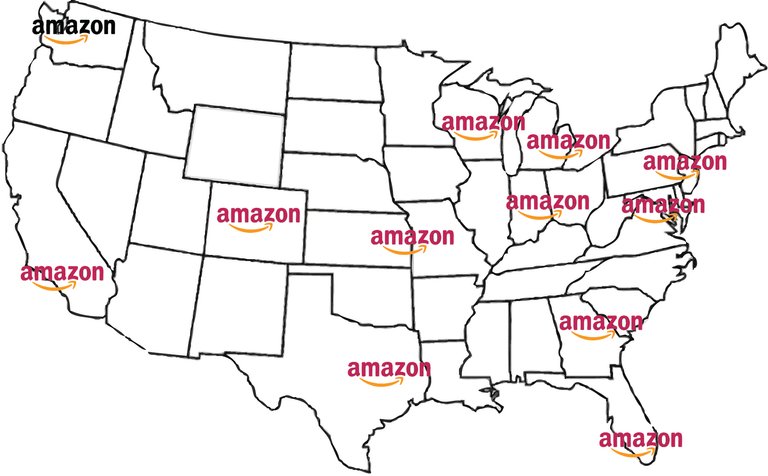
Absolutely! Amazon needs to engage with the community around it to succeed in the long term. Building bonds with a long-term vision in mind is so critical... because honestly, who knows if Amazon will be around in 20 years? You wouldn't want these neighborhoods to end up abandoned like an olympic village.
I worry that a lot of these tech-towns are doing what Detroit did in the 1950s. There's a monopolization of industry (retail-tech) happening here. Everyone worked in a car factory in 1950, and when those factories began to close... everything collapsed.
While Amazon is clearly bringing/investing in more than just brick and mortar, I still wonder how it will all shake out 20 or so years down the road. Great post @tyler-cukar
Also I am offended that you've called Philadelphia a "tier 2" city ;)
yes, @voroni I use tier 2 in loosest way possible. Tier 2 in that land is still some what economical. We could call it a 1.5!
What is a tier 1 city? How is Philadelphia, the nation's 5th most populated city not a tier 1 city? Why not add Sacramento California to the list of cities competing for Amazon?
@untrust yes, the "ranking" system is a bit convoluted. Tier 1 cities are generally considered global or world cities. There are debates within the United States. Generally NYC and LA are on the list and occasionally Chicago. Tier 2 cities are Large cities experiencing or the potential to experience high growth. I have included an intriguing link from the Geography department at Loughborough University. They are doing work to produce and disseminate knowledge around cities at a global comparative level. Their top cities are NY and London with Philly coming in as a Beta + city. http://www.lboro.ac.uk/gawc/group.html
In the end the ranking system is up for grabs based on the metrics being used! Sacramento, I would hope is competing!
Thanks for sending me the UK link. Looks like a online library for works on world cities but not very user friendly-looks like a site from the 1990's. Updated site but not really easy to see anything.
Is there a real definition of tier cities or opinions? This link just gives random guesses from people. Link to Quora Looks from your comment that the tier system is only opioions.
As for Sacramento International Airport, it's not that busy but only 100 mile drive to San Francisco International Airport. Link to Sacramento International Airport Land price would be cheaper in Sacramento than San Fransico and a short drive to the airport of 100 miles could save Amazon a good amount of money.
I'm so glad Amazon is considering my city as well! :D (Indianapolis) would essentially have an exponential variable added to the growth
Congratulations @tyler-cukar! You have completed some achievement on Steemit and have been rewarded with new badge(s) :
Click on any badge to view your own Board of Honor on SteemitBoard.
For more information about SteemitBoard, click here
If you no longer want to receive notifications, reply to this comment with the word
STOPGood job my friend
It would be an interesting exercise to see how the many interested cities responded in their local press coverage. I'd say Philadelphia has been all over this, even sending to Seattle staffers to help "understand the Amazon culture." I wonder if these envoys plan to share some of Philly's quirky cultural habits?
Cool! I follow you.
Congratulations @tyler-cukar! You have received a personal award!
Click on the badge to view your Board of Honor.
Do not miss the last post from @steemitboard:
Congratulations @tyler-cukar! You received a personal award!
You can view your badges on your Steem Board and compare to others on the Steem Ranking
Vote for @Steemitboard as a witness to get one more award and increased upvotes!